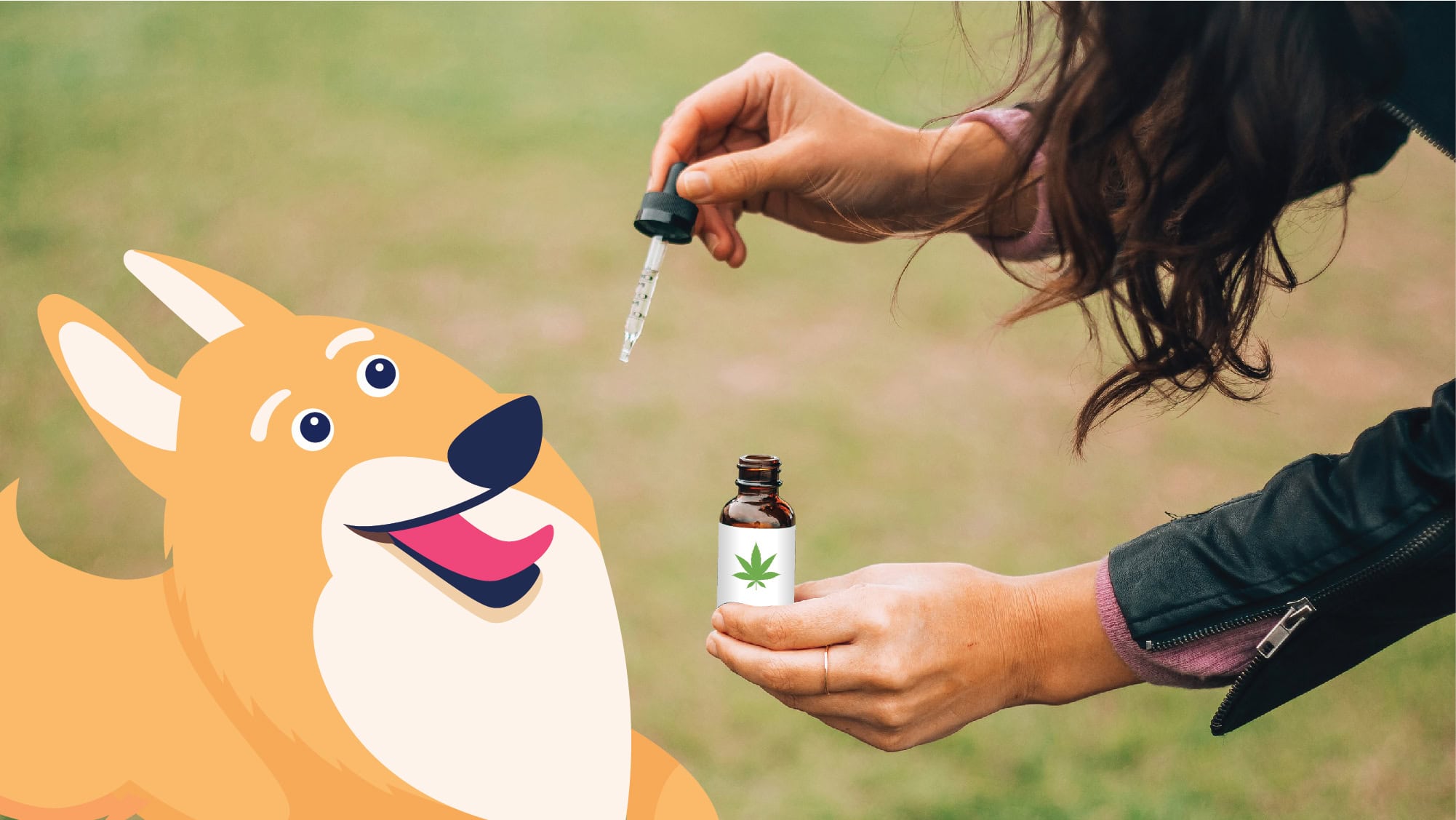CBD, or cannabidiol, has gained popularity as a potential treatment option for both humans and pets. Pet owners are increasingly curious about the benefits of using CBD for their furry companions
In this blog, we will explore the pros and cons of CBD for pets and provide essential considerations for incorporating it into your pet’s wellness routine.
What is CBD?
CBD, or cannabidiol, is a compound found in the cannabis plant that has been increasing in popularity in recent years as a treatment for a variety of health conditions in both humans and pets.
While research on the use of CBD for pets is still in the early stages, many pet parents have expressed interest in whether CBD is an appropriate alternative treatment option for their pets.
Related reading: My Dog Ate Marijuana: What Should I Do?
Pros for Using CBD for Pets
Here are some advantages of using CBD for your pet to help you make an informed decision in consultation with your veterinarian:
Safe and natural treatment option
CBD for pets is generally considered safe and natural, without the psychoactive effects of THC. It does not create a “high” in humans or pets.
Wide range of potential health benefits
CBD may be effective in treating various pet health conditions, although ongoing research is being conducted. Common conditions that CBD may help with include anxiety, chronic pain, and seizures.
Potential for addressing behavioral issues
CBD has shown promise in helping pets with behavioral issues such as separation anxiety, noise phobias, and fear-based aggression.
It’s important to choose pet-specific CBD products. While there isn’t a significant difference between a pet and human CBD, selecting these products formulated specifically for pets ensures appropriate dosage and safety.
Cons for Using CBD for Pets
While there are potential benefits to using CBD for pets, it’s important to consider the following cons before incorporating it into your pet’s wellness regimen:
Limited research on the effectiveness
The effectiveness of CBD for pets is still being explored, and more research is needed to fully understand its potential benefits and risks. Pet parents should recognize the current limitations of research and discuss the appropriateness of CBD products with their veterinarian.
Cost implications
CBD products can be expensive, especially those of high quality. Pet parents may need to invest in multiple brands or products to find the most effective option for their pets. It’s important to consider the financial commitment associated with using CBD for pets.
Variability in product quality
Not all CBD products are created equal, and there can be discrepancies between the advertised CBD content and the actual amount present in the product. Pet owners should be vigilant in selecting reputable brands that provide transparent information about their products’ quality and CBD concentration.
Lack of FDA approval
It’s crucial to note that the FDA has not approved CBD for use in pets. While many pet owners have reported positive experiences, it’s essential to exercise caution and consult with a veterinarian before starting any new treatment for your pet.
Conclusion
CBD is a popular treatment option for humans and pets. While research on CBD for pets is ongoing, many pet parents are interested in trying it.
Pros of using CBD for pets include its perceived safety, effectiveness in treating various conditions, and potential for behavioral improvements. However, the cons include limited research, cost, and lack of FDA approval.
Consulting with a veterinarian is essential before starting any new treatment, considering the appropriate dosage and product quality.
Frequently Asked Questions
Is CBD ok for dogs and cats?
Studies have shown CBD to be generally safe in cats and dogs, but a 2020 study published in a veterinary journal raised some concerns about the absorption and elimination of CBD for cats.
How much CBD can pets have?
Your veterinarian best answers this question, as your pet’s weight, species, and overall health can all be factors when deciding if CBD is an appropriate treatment option for your pet.






